
Decarbonisation reduces or eliminates CO2 and other greenhouse gas (GHG) emissions to mitigate climate change. The importance of decarbonisation lies in its ability to help stabilise global temperatures and limit climate change’s dangerous and irreversible effects by achieving net-zero GHG emissions. It means balancing the amount of GHG emitted with an equivalent amount removed from the atmosphere.
Key sectors acting as sources of global emissions include energy, transportation, buildings, and agriculture. The transportation sector plays a significant role due to emissions from vehicles and aircraft, while building operations and agriculture contribute through energy use and methane emissions, respectively.
The role of renewable energy The transition from fossil fuels to renewable energy will lead to decarbonisation efforts. In 2023, the world witnessed a surge in renewable energy capacity, increasing by 50 per cent from the previous year, led by advancements in solar and wind technologies. For instance, the cost of solar PV and onshore wind power has become competitive, making them cheaper than new and existing fossil fuel power plants.
Countries like China, the United States, the European Union, and Brazil led this expansion. China alone expected to install more than half of the new global capacity required by 2030, ahead of its targets due to the economic attractiveness of these technologies. Similarly, the United States is seeing accelerated renewable additions, spurred by policies like the Inflation Reduction Act.
This story is from the August 2024 edition of EPR Magazine (Electrical & Power Review).
Start your 7-day Magzter GOLD free trial to access thousands of curated premium stories, and 9,000+ magazines and newspapers.
Already a subscriber ? Sign In
This story is from the August 2024 edition of EPR Magazine (Electrical & Power Review).
Start your 7-day Magzter GOLD free trial to access thousands of curated premium stories, and 9,000+ magazines and newspapers.
Already a subscriber? Sign In
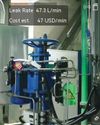
HIKMICRO AI Acoustic Imager enhances industrial efficiency by detecting air leaks
Industry studies suggest that leaks in compressed air systems can account for up to 30 percent of energy waste. Compressed air leaks are often harder to detect than other types of gas leaks because they do not produce noticeable smells or colours.

Driving innovation and expanding capacity to accelerate India's 2030 renewable energy goal
The company has outlined a strategy to expand its manufacturing capabilities in a phased approach to boost solar panel production to 13 GW. This includes preparation to launch a 4 GW TOPCon cell manufacturing plant by FY 2026-27.

By 2040, 49% of electricity will come from RE
According to the REN21 Renewables 2020 Global Status Report, investments in renewable energy projects and programmes totalled US$64.4 billion between 2014 and 2019.
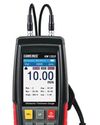
KUSAM-MECO introduces advanced models 'KM -131D' and 'KM 891'
The KM-131D is an ultrasonic thickness gauge model, while the KM 891 is an auto-ranging true RMS digital multimeter with data logging and a PC interface.

Customisable earthing solutions for smart city safety and sustainability
The firm offers a range of earthing compounds, grounding electrodes, and backfill materials, each tailored to optimise performance for different soil conditions, resistivity levels, and environmental factors. Whether it is a smart grid, renewable energy system, or EV charging station, its solutions can ensure safety, efficiency, and longevity.
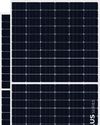
Novasys Greenergy pioneering innovation in solar panel manufacturing
The company's mission is to provide reliable, efficient, and affordable solar energy products for both residential and commercial markets.
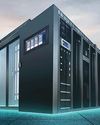
Make buildings and data centres hubs for energy efficiency
Delta modular UPS (Uninterruptible Power Supply) systems are engineered to help achieve maximum energy efficiency and cut operational costs across residential and commercial requirements.

Smart energy management for sustainable smart cities
Renewable energy, efficient power distribution, and advanced storage technologies are at the heart of smart city initiatives, opening the way for greener, more sustainable urban environments.
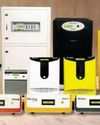
Su-Kam is an added layer of resilience against grid failures
Su-Kam offers lithium-ion battery solutions and advanced ESS (Energy Storage Systems) racks, Which enhance energy storage capacity and offer longer life cycles. Its hybrid inverters can operate both off-grid and on-grid, helping to reduce dependence on the national grid.

Advancements in energy storage boosting reliable and clean power solutions
Lithium-ion batteries, with high energy density and declining costs, power everything from EVs to grid storage. Flow batteries offer long-duration storage ideal for balancing renewable sources, while solid-state batteries, though still in development, promise improved safety and lifespan.